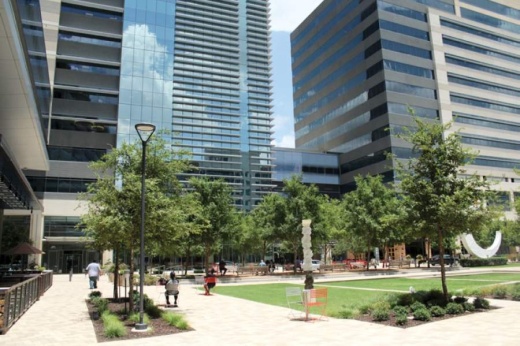“[The] office [market] is going to change big time, and nobody really knows what it is going to look like,” said Mac Morse, an advisor with Citadel Partners, a commercial real estate advisory firm.
Companies that formerly viewed working from home as the antithesis to productivity are now questioning whether it is worth spending thousands of dollars a month on rent, Morse said.
“This could 100% lead to fewer office leases in the future,” he said.
Nine of the commercial transactions Morse was handling prior to the pandemic have fallen through. Another five are on hold for the foreseeable future, but Morse said there is a good chance those could be off the table as well.
“Time kills deals,” he said.
In general, Morse said he estimates office lease renewals in the immediate Dallas submarkets are down by 50%, while new deals are practically nonexistent.
Office vacancy in Richardson is down only slightly from this time last year, with 14.85% of the 21.7 million square feet of office space unoccupied, according to data provided by John Jacobs, executive vice president of the Richardson Economic Development Partnership.
The effects of COVID-19 on the commercial real estate market will likely not be seen until the third quarter of this year, which begins in June, Jacobs said.
New commercial construction has also taken a hit as developers halt projects, particularly those that lacked tenants, Morse said.
“Big landlords ... are now saying [speculative] developments are off the table,” he said. “The only way we are going to build this building is if we have an anchor tenant.”
Construction is deemed an essential activity in Richardson and has therefore been allowed to continue amid stay-at-home orders. However, uncertainty about the future means developers are hesitant to invest in new projects, Morse said.
“Unless something is absolutely shored up, people are not going to be making those big moves,” he said.
The Dallas Fort-Worth commercial real estate market was on an estimated decade-long upswing when the pandemic hit, Morse said.
However, Morse said, low commercial vacancy rates, combined with the fact that the DFW market is not overbuilt or overleveraged, means it will recover more quickly than other metropolitan areas.
“I do think we are going to bounce back strong and quick,” he said. “The getting-out-of-it is not going to take as long as it has in previous recessions.”





